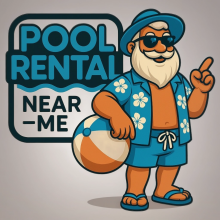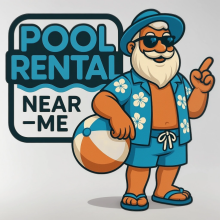Navigate Legal Requirements and Stay Compliant While Hosting
Understanding and complying with local regulations is essential for successful, legal pool hosting. This guide helps you identify requirements, obtain necessary permits, and maintain compliance in your area.
Why Compliance Matters
Legal Protection
- Avoid fines, penalties, and legal issues
- Protect your property and business operations
- Maintain valid insurance coverage
- Ensure guest safety and liability protection
Platform Standards
- Meet Pool Rental Near Me hosting requirements
- Maintain good standing in our community
- Protect your earning potential
- Build trust with guests through transparency
Common Regulatory Areas
Zoning and Land Use
Residential Zoning Considerations
- Short-term rental restrictions in residential areas
- Home-based business limitations
- Parking and traffic impact regulations
- Noise ordinances and quiet hours
Commercial Activity Rules
- Business license requirements for rental income
- Commercial use permits for residential properties
- Occupancy limits and safety standards
- Signage restrictions and advertising rules
Health Department Regulations
Pool Safety Standards
- Water quality testing and chemical balance requirements
- Filtration and circulation system standards
- Safety equipment and barrier requirements
- Regular inspection and maintenance schedules
Public Health Compliance
- Guest capacity limits based on pool size
- Restroom and changing facility requirements
- Food service restrictions and permits
- Communicable disease prevention protocols
Building and Safety Codes
Structural Requirements
- Pool fencing height and gate specifications
- Electrical safety and GFCI protection
- Slip-resistant surfaces and accessibility features
- Emergency access and egress requirements
Fire Safety Compliance
- Fire department access requirements
- Emergency equipment and signage
- Occupancy limits for outdoor gatherings
- Barbecue and fire feature regulations
Permit Types You May Need
Business and Tax Permits
Business License
- General business operation permit
- Home-based business endorsement
- Sales tax collection permit (if applicable)
- Employer identification number (EIN)
Tax Registration
- Transient occupancy tax (TOT) registration
- Local business tax permits
- State tax identification numbers
- Property tax reassessment considerations
Safety and Health Permits
Pool Operation Permits
- Public pool operation license (if required)
- Water quality testing certification
- Chemical storage and handling permits
- Waste disposal permits for pool maintenance
Event and Gathering Permits
- Special event permits for large groups
- Temporary use permits for parties
- Noise permits for amplified music
- Alcohol service permits (if applicable)
Property and Construction Permits
Modification Permits
- Building permits for pool area changes
- Electrical permits for new lighting or equipment
- Plumbing permits for additional facilities
- Landscaping permits for significant changes
Research Your Local Requirements
Municipal Regulations
City/County Requirements
- Visit your local city hall or county office
- Review municipal codes and ordinances
- Check planning and zoning department requirements
- Understand business licensing procedures
Online Resources
- Municipal websites and permit portals
- Online permit application systems
- Regulatory databases and code searches
- Public records and compliance information
State-Level Regulations
State Health Departments
- Pool safety and sanitation standards
- Water quality testing requirements
- Chemical handling and storage rules
- Public health compliance guidelines
State Business Regulations
- Business registration requirements
- Tax collection and remittance rules
- Insurance and liability standards
- Worker safety and employment laws
Homeowners Association (HOA) Rules
Property Restrictions
- Short-term rental policies and restrictions
- Guest parking and access limitations
- Noise and activity restrictions
- Commercial activity prohibitions
Approval Processes
- HOA board approval requirements
- Architectural review committee oversight
- Insurance and liability considerations
- Neighbor notification procedures
Compliance Checklist by Location Type
Urban/Metropolitan Areas
Common Requirements ✅ Business license and tax registration ✅ Zoning compliance verification ✅ Parking and traffic impact assessment ✅ Noise ordinance compliance plan ✅ Health department pool permits ✅ Fire department safety inspection
Special Considerations
- Higher occupancy restrictions
- Stricter noise and activity limits
- More complex permitting processes
- Greater neighbor impact concerns
Suburban Residential Areas
Typical Requirements ✅ Residential business permit ✅ HOA approval (if applicable) ✅ Pool safety compliance ✅ Parking and access verification ✅ Insurance coverage confirmation ✅ Property tax implications review
Key Focus Areas
- Neighborhood compatibility
- Property value impact
- Traffic and parking management
- Noise and privacy concerns
Rural/County Areas
Standard Requirements ✅ County business license ✅ Septic and well water considerations ✅ Fire department access verification ✅ Environmental impact assessment ✅ Agricultural zoning compliance ✅ Emergency services accessibility
Unique Considerations
- Longer emergency response times
- Environmental protection requirements
- Agricultural use restrictions
- Water rights and usage limitations
Step-by-Step Compliance Process
Phase 1: Research and Planning (2-4 weeks)
Week 1-2: Initial Research
- Contact local planning/zoning department
- Review municipal codes and ordinances
- Check HOA rules and restrictions
- Research state health department requirements
Week 3-4: Requirements Assessment
- Create comprehensive requirements list
- Identify necessary permits and licenses
- Estimate costs and timelines
- Develop compliance timeline
Phase 2: Application and Approval (4-8 weeks)
Permit Applications
- Submit business license applications
- Apply for required health permits
- Request necessary inspections
- Complete tax registration processes
Documentation Preparation
- Gather property documentation
- Prepare site plans and layouts
- Compile insurance certificates
- Create safety and operations manuals
Phase 3: Implementation and Monitoring (Ongoing)
Compliance Implementation
- Install required safety equipment
- Implement operational procedures
- Train on regulatory requirements
- Establish record-keeping systems
Ongoing Monitoring
- Schedule regular inspections
- Maintain current permits and licenses
- Monitor regulatory changes
- Update procedures as needed
Common Compliance Challenges
Zoning Restrictions
Challenge: Residential zoning prohibits commercial activities Solutions:
- Apply for conditional use permits
- Seek zoning variances or exceptions
- Limit operations to comply with restrictions
- Consider alternative property uses
Neighbor Concerns
Challenge: Community opposition to rental activities Solutions:
- Engage neighbors early in the process
- Address concerns proactively
- Implement strict house rules
- Maintain open communication channels
Permit Complexity
Challenge: Multiple overlapping permit requirements Solutions:
- Work with permit expediting services
- Consult with local attorneys or consultants
- Join local host organizations for support
- Maintain detailed compliance documentation
Maintaining Ongoing Compliance
Regular Reviews
Annual Compliance Audit
- Review all permits and licenses for renewal
- Update procedures based on regulatory changes
- Assess insurance coverage adequacy
- Evaluate operational compliance
Quarterly Monitoring
- Check for new regulatory requirements
- Review operational procedures
- Update documentation and records
- Address any compliance issues
Record Keeping
Essential Documentation ✅ All permits and licenses (current and expired) ✅ Inspection reports and certificates ✅ Insurance policies and certificates ✅ Tax registration and payment records ✅ HOA approvals and correspondence ✅ Guest waivers and safety documentation
Retention Guidelines
- Keep permits and licenses for 7 years after expiration
- Maintain inspection records for 5 years
- Retain tax documents per IRS requirements
- Store insurance records for policy period plus 3 years
Professional Resources
Legal and Regulatory Assistance
When to Consult Professionals
- Complex zoning or permit issues
- Neighbor disputes or legal challenges
- Multiple jurisdiction requirements
- Significant property modifications
Types of Professional Help
- Land use attorneys
- Permit expediting services
- Regulatory compliance consultants
- Local government liaisons
Industry Resources
Host Organizations
- Local short-term rental associations
- Property management groups
- Tourism and hospitality organizations
- Chamber of commerce memberships
Educational Resources
- Municipal training programs
- Industry conferences and workshops
- Online compliance courses
- Regulatory update services
Red Flags and Warning Signs
Immediate Action Required
🚨 Stop Operations If:
- Operating without required permits
- Receiving violation notices or citations
- Insurance coverage has lapsed
- Safety equipment is non-functional
- Exceeding legal occupancy limits
Compliance Monitoring
Watch For:
- Changes in local ordinances
- New permit requirements
- Neighbor complaints or concerns
- Insurance policy changes
- Property tax reassessments
Getting Help
Pool Rental Near Me Support
📞 Legal Compliance Hotline: 866-420-3702 📧 Email: compliance@poolrentalnearme.com 💬 Live Chat: Available 7am-10pm daily 📚 Resources: Legal Compliance Resource Center
Local Government Resources
- Planning and zoning departments
- Business licensing offices
- Health department pool divisions
- Fire department safety inspectors
- Tax assessor offices
Professional Services Directory
We maintain a directory of recommended professionals in major markets:
- Attorneys specializing in short-term rentals
- Permit expediting services
- Insurance agents familiar with pool rentals
- Compliance consultants
Important Disclaimers
Legal Advice Limitation This guide provides general information only and does not constitute legal advice. Regulations vary significantly by location and change frequently. Always consult with qualified local professionals and government officials for specific requirements in your area.
Host Responsibility Hosts are solely responsible for understanding and complying with all applicable laws, regulations, and permit requirements. Pool Rental Near Me cannot guarantee the accuracy or completeness of regulatory information and is not liable for compliance failures.
Professional Consultation Recommended For complex situations, significant investments, or legal uncertainties, we strongly recommend consulting with qualified attorneys, consultants, or government officials familiar with local requirements.
Ready to ensure compliance? [Contact Local Compliance Resources →]
Questions about regulations in your area? Our compliance team can help connect you with local resources and professional services.
Last Updated: 09/08/2025
For questions about compliance requirements: compliance@poolrentalnearme.com

